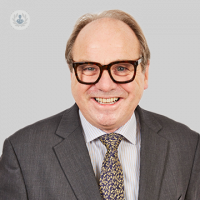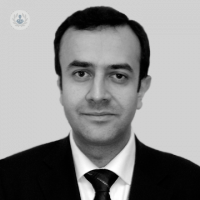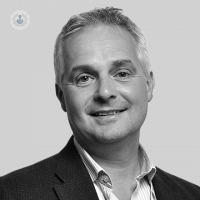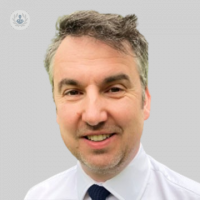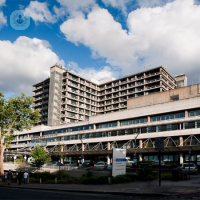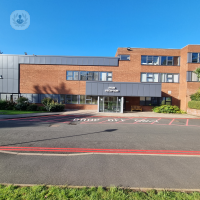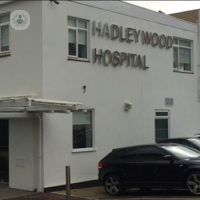
What is alcoholic liver disease?
Alcoholic liver disease (also known as ARLD) is caused by excess alcohol consumption, which damages the liver because of a build-up of fat and leads to scarring and inflammation. The liver usually regenerates itself but in drinking too much alcohol, over time it can cease to properly function and can even be fatal if not treated in the early stages. Completely stopping alcohol consumption is the only chance a person has at recovery.
There are four stages: alcoholic fatty liver disease, alcoholic hepatitis, fibrosis and cirrhosis. The sooner any signs of disease are detected, and the sooner the alcohol consumption is reduced or ceased, the better the chance of recovery.
What are the symptoms of alcoholic liver disease?
The early warning signs of the disease include:
- Pain in the abdomen
- Nausea and vomiting
- Decreased appetite
Once it advances to the later stages of the disease, the following symptoms occur:
- Jaundice - yellowing of the whites of the eyes and the skin
- Swelling of lower limbs
- Fever and shivering
- Itchy skin
- Significant weight loss
- Weakness of muscles
- Blood in vomit and stools
How is alcoholic liver disease treated?
The first thing is that all alcohol consumption has to completely stop. This can reverse some of the damage in early-stage alcoholic liver disease. You will never be able to drink alcohol again because it will reverse any healing progress.
For some people who depend on alcohol, professional help from a gastroenterologist will be required. Talking therapy such as cognitive behavioural therapy (CBT) can be used in conjunction with medications used to treat symptoms of withdrawal. For those who are seriously addicted to alcohol, they may find a rehabilitation program most useful.
Other treatment may include taking certain medications, such as corticosteroids whilst in hospital as well as making lifestyle changes like quitting smoking.
In patients with liver failure as an outcome of advanced-stage liver disease, a liver transplant is the only option as a chance of survival. They have to be able to abstain from alcohol for longer than six months before the transplantation so that they are healthy enough to undergo surgery.
Liver transplant depends on whether there is a donor available who is a suitable match for the patient.
What is the outlook for alcoholic liver disease?
As the condition progresses to each stage of the disease, the patient's life expectancy decreases. Those with the less severe stage of the disease will have a chance of living longer provided that they give up alcohol. Alcoholic liver disease can also be is treated by a hepatologist, as well as a gastroenterologist.
03-01-2017 10-17-2023Alcoholic liver disease
Professor Kevin Peter Moore - Hepatology (liver specialist)
Created on: 03-01-2017
Updated on: 10-17-2023
Edited by: Aoife Maguire

What is alcoholic liver disease?
Alcoholic liver disease (also known as ARLD) is caused by excess alcohol consumption, which damages the liver because of a build-up of fat and leads to scarring and inflammation. The liver usually regenerates itself but in drinking too much alcohol, over time it can cease to properly function and can even be fatal if not treated in the early stages. Completely stopping alcohol consumption is the only chance a person has at recovery.
There are four stages: alcoholic fatty liver disease, alcoholic hepatitis, fibrosis and cirrhosis. The sooner any signs of disease are detected, and the sooner the alcohol consumption is reduced or ceased, the better the chance of recovery.
What are the symptoms of alcoholic liver disease?
The early warning signs of the disease include:
- Pain in the abdomen
- Nausea and vomiting
- Decreased appetite
Once it advances to the later stages of the disease, the following symptoms occur:
- Jaundice - yellowing of the whites of the eyes and the skin
- Swelling of lower limbs
- Fever and shivering
- Itchy skin
- Significant weight loss
- Weakness of muscles
- Blood in vomit and stools
How is alcoholic liver disease treated?
The first thing is that all alcohol consumption has to completely stop. This can reverse some of the damage in early-stage alcoholic liver disease. You will never be able to drink alcohol again because it will reverse any healing progress.
For some people who depend on alcohol, professional help from a gastroenterologist will be required. Talking therapy such as cognitive behavioural therapy (CBT) can be used in conjunction with medications used to treat symptoms of withdrawal. For those who are seriously addicted to alcohol, they may find a rehabilitation program most useful.
Other treatment may include taking certain medications, such as corticosteroids whilst in hospital as well as making lifestyle changes like quitting smoking.
In patients with liver failure as an outcome of advanced-stage liver disease, a liver transplant is the only option as a chance of survival. They have to be able to abstain from alcohol for longer than six months before the transplantation so that they are healthy enough to undergo surgery.
Liver transplant depends on whether there is a donor available who is a suitable match for the patient.
What is the outlook for alcoholic liver disease?
As the condition progresses to each stage of the disease, the patient's life expectancy decreases. Those with the less severe stage of the disease will have a chance of living longer provided that they give up alcohol. Alcoholic liver disease can also be is treated by a hepatologist, as well as a gastroenterologist.


Alcohol-related liver disease (ARLD): How many units are in your drink?
By Dr Jeremy Cobbold
2024-12-14
Do you know how many alcohol units are in your glass? Alcohol is a normal and pleasurable part of social occasions, but still, we should all try to consume it in moderation. Dr Jeremy Cobbold, a hepatologist and gastroenterologist, tells you how much alcohol is bad for you, clarifies how many alcohol units are in your drinks, addresses binge drinking and provides you with tips to lower your intake. See more


What does holiday binge drinking do to the liver?
By Dr Phillip Harrison
2024-12-14
If you're ready for your summer holidays, you may not realise how easy it is to overconsume on alcohol when you're relaxing, starting at the airport, around the pool and with your evening meal. We spoke to one of our liver specialists Dr Phillip Harrison about just how dangerous holiday drinking can be. See more
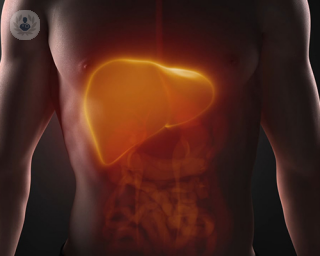

Why see a hepatologist (liver specialist)?
By Professor Kevin Peter Moore
2024-12-14
The liver is estimated to perform 500+ vital functions in the body. If your doctor suspects you may be having a problem with your liver, they may refer you to a specialist called a hepatologist. Professor Kevin Moore explains what a liver specialist does, & the kinds of patient he is able to see. See more


Liver disease: can the liver repair itself after years of drinking?
By Dr Ghazanfar Ali
2024-12-14
Alcohol is frequently used to add to the enjoyment of life, but it does come with some negative consequences, one of these being alcohol related liver disease (ARLD). Mr Ghazanfar Ali is a leading gastroenterologist with many years of experience in treating liver disease and here he provides answers to the most common questions. See more
Experts in Alcoholic liver disease
-
Professor Kevin Peter Moore
Hepatology (liver specialist)Expert in:
- Ascites
- Alcoholic liver disease
- Cirrhosis
- Fatty liver
- Haemochromatosis
- Alcoholism
-
Professor Raj Mookerjee
GastroenterologyExpert in:
- Cirrhosis
- Fatty liver
- Alcoholic liver disease
- Autoimmune hepatitis
- Endoscopy
- Biopsy
-
Dr Andrew Peter Holt
Hepatology (liver specialist)Expert in:
- Cirrhosis
- Alcoholic liver disease
- Fatty liver
- Viral hepatitis
- Primary biliary cholangitis (PBC)
- Liver transplant
-
Dr Andy King
GastroenterologyExpert in:
- Indigestion (dyspepsia)
- Abdominal pain
- Liver function tests
- Fatty liver
- Viral hepatitis
- Alcoholic liver disease
-
Dr Richard Parker
Hepatology (liver specialist)Expert in:
- Liver disease
- Fatty liver
- Alcoholic liver disease
- Autoimmune hepatitis
- Liver transplant
- See all

The Royal Free Hospital
The Royal Free Hospital
Pond Street, Hampstead. NW3 2QG
No existe teléfono en el centro.
By using the telephone number provided by TOP DOCTORS, you automatically agree to let us use your phone number for statistical and commercial purposes. For further information, read our Privacy Policy
Top Doctors

The Priory Hospital - part of Circle Health Group
The Priory Hospital - part of Circle Health Group
Priory Road, Edgbaston, Birmingham B5 7UG
No existe teléfono en el centro.
By using the telephone number provided by TOP DOCTORS, you automatically agree to let us use your phone number for statistical and commercial purposes. For further information, read our Privacy Policy
Top Doctors

Hadley Wood Hospital
Hadley Wood Hospital
52 Moxon Street, Barnet.
No existe teléfono en el centro.
By using the telephone number provided by TOP DOCTORS, you automatically agree to let us use your phone number for statistical and commercial purposes. For further information, read our Privacy Policy
Top Doctors
-
The Royal Free Hospital
Pond Street, Hampstead. NW3 2QG, Central LondonExpert in:
- General Surgery
- Orthopaedic surgery
- Robotic Surgery
- Dermatology
- Obstetrics and Gynaecology
- Paediatrics
-
The Priory Hospital - part of Circle Health Group
Priory Road, Edgbaston, Birmingham B5 7UG, EdgbastonExpert in:
- Cancer
- General Surgery
- Orthopaedic surgery
- Thoracic Surgery
- Obstetrics and Gynaecology
- Urology
-
Hadley Wood Hospital
52 Moxon Street, Barnet. , North LondonExpert in:
- Cardiology
- Colonoscopy
- Dermatology
- Diagnostic Imaging
- Pain management
- Facial aesthetics
- See all
- Most viewed diseases, medical tests, and treatments
- Nutrition
- Abdominal pain
- Anxiety
- Stress
- Digestive diseases
- Intestinal pseudo-obstruction
- Hirschsprung's disease
- Anorectal malformation
- Obstructed defecation syndrome
- Colectomy
